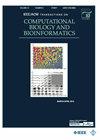A Knowledge Graph-Based Method for Drug-Drug Interaction Prediction With Contrastive Learning
IF 3.4
3区 生物学
Q2 BIOCHEMICAL RESEARCH METHODS
IEEE/ACM Transactions on Computational Biology and Bioinformatics
Pub Date : 2024-10-09
DOI:10.1109/TCBB.2024.3477410
引用次数: 0
Abstract
Precisely predicting Drug-Drug Interactions (DDIs) carries the potential to elevate the quality and safety of drug therapies, protecting the well-being of patients, and providing essential guidance and decision support at every stage of the drug development process. In recent years, leveraging large-scale biomedical knowledge graphs has improved DDI prediction performance. However, the feature extraction procedures in these methods are still rough. More refined features may further improve the quality of predictions. To overcome these limitations, we develop a knowledge graph-based method for multi-typed DDI prediction with contrastive learning (KG-CLDDI). In KG-CLDDI, we combine drug knowledge aggregation features from the knowledge graph with drug topological aggregation features from the DDI graph. Additionally, we build a contrastive learning module that uses horizontal reversal and dropout operations to produce high-quality embeddings for drug-drug pairs. The comparison results indicate that KG-CLDDI is superior to state-of-the-art models in both the transductive and inductive settings. Notably, for the inductive setting, KG-CLDDI outperforms the previous best method by 17.49% and 24.97% in terms of AUC and AUPR, respectively. Furthermore, we conduct the ablation analysis and case study to show the effectiveness of KG-CLDDI. These findings illustrate the potential significance of KG-CLDDI in advancing DDI research and its clinical applications.基于知识图谱的药物相互作用预测方法与对比学习。
精确预测药物间相互作用(DDI)有可能提高药物治疗的质量和安全性,保护患者的健康,并在药物开发过程的各个阶段提供必要的指导和决策支持。近年来,利用大规模生物医学知识图谱提高了 DDI 预测性能。然而,这些方法中的特征提取程序仍然比较粗糙。更精细的特征可能会进一步提高预测质量。为了克服这些局限性,我们开发了一种基于知识图谱的多类型 DDI 预测方法(KG-CLDDI)。在 KG-CLDDI 中,我们将知识图谱中的药物知识聚合特征与 DDI 图谱中的药物拓扑聚合特征相结合。此外,我们还建立了一个对比学习模块,利用水平反转和剔除操作为药物对生成高质量的嵌入。对比结果表明,KG-CLDDI 在转导和归纳环境中都优于最先进的模型。值得注意的是,在归纳环境中,KG-CLDDI 的 AUC 和 AUPR 分别比之前的最佳方法高出 17.49% 和 24.97%。此外,我们还进行了消融分析和案例研究,以显示 KG-CLDDI 的有效性。这些发现说明了 KG-CLDDI 在推动 DDI 研究及其临床应用方面的潜在意义。KG-CLDDI 的代码见 https://github.com/jianzhong123/KG-CLDDI。
本文章由计算机程序翻译,如有差异,请以英文原文为准。
求助全文
约1分钟内获得全文
求助全文
来源期刊
CiteScore
7.50
自引率
6.70%
发文量
479
审稿时长
3 months
期刊介绍:
IEEE/ACM Transactions on Computational Biology and Bioinformatics emphasizes the algorithmic, mathematical, statistical and computational methods that are central in bioinformatics and computational biology; the development and testing of effective computer programs in bioinformatics; the development of biological databases; and important biological results that are obtained from the use of these methods, programs and databases; the emerging field of Systems Biology, where many forms of data are used to create a computer-based model of a complex biological system

 求助内容:
求助内容: 应助结果提醒方式:
应助结果提醒方式:


